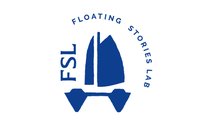Regenerative Tides: Sailing for Solutions (ReTISS)
from 15/06/2025 until 15/01/2026
Regenerative Tides: Sailing for Solutions (ReTISS) is a multidisciplinary citizen science initiative combining environmental research, storytelling, and community engagement to investigate the ecological and health impacts of abandoned fiberglass (GRP) boats.
Our mission is to empower coastal communities—particularly underrepresented groups—to take part in field data collection, environmental education, and policy advocacy. By engaging citizens directly, we aim to drive more sustainable marine waste management practices and promote regenerative design in the boating industry.
From June 2025 to January 2026, ReTISS is piloting in Brittany, France, bringing together citizen scientists, students, teachers, artists, sailors, and eco-organizations.
By 2030, we envision ReTISS as a globally recognized model for community-led marine monitoring and advocacy. Building on the Brittany pilot, we aim to:
Expand to other European coastal regions through cross-border collaboration
Share our open-access toolkit and ArcGIS database with citizen science groups worldwide
Contribute data to national and EU marine waste policies and international frameworks such as OSPAR
Strengthen partnerships in Small Island Developing States (SIDS), the UK, Japan, Australia, and beyond
Operate from the Floating Stories Lab’s wooden catamaran, serving as a mobile field station for science, storytelling, and advocacy
Aim
Abandoned fiberglass boats are an overlooked but pressing source of marine pollution. As they degrade, they release microfiberglass particles into surrounding waters. These particles enter the food chain through shellfish and other aquatic life, with consequences for biodiversity and human health.
Despite the scale of the problem, there is a critical lack of reliable data. ReTISS seeks to address this by:
Creating a public, open-source database of end-of-life boats
Demonstrating the role of citizen science in marine monitoring
Supporting policy innovation and environmental justice
Amplifying coastal voices through storytelling and education
How to participate
Participants are:
Mapping abandoned, derelict and end-of-life boats through a public survey with results mapped on to an interactive platform
Collecting and analyzing water and sediment samples with handheld microscopes
Publishing open-access environmental data to support science and policy
Co-creating stories and advocacy materials to raise awareness and drive change
Learn More & Access Resource Materials: https://www.floatingstorieslab.org/regenerative-tides
Needed equipment
Bad Boat Mapping Field Guide
Hand-held microscope (if available)
Smart Phone with camera
About funding
Funding bodies: IMPETUS
Funding program: IMPETUS Accelerator 2025
